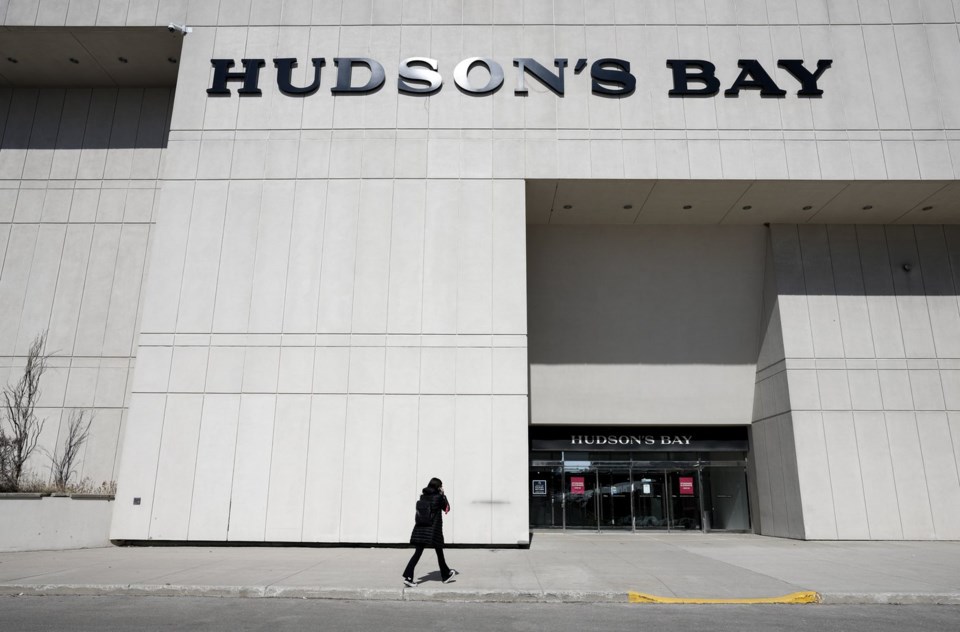TORONTO — More than 8,300 workers will have lost their job and some benefits by the time Hudson's Bay closes all of its stores at the start of June, new court documents filed by the collapsing retailer say.
The cut will span the majority of the 9,364 workers at Canada's oldest company and form one of the country's biggest retail layoffs in recent memory.
The peek at how Hudson's Bay will part ways with staff came in court filings made late Monday in the company's ongoing creditor protection case. They arrived ahead of June 1, when liquidation sales at its Bay stores and 16 Saks locations will end.
The 355-year-old business must vacate all of its properties by the end of June but will spend the weeks after dismantling the stores and letting people who bought furniture and fixtures during the liquidation pick them up.
Some 1,017 staff will be on hand to help with tasks after the closures but many won't stick around for longer than two additional weeks.
After June 15, about 118 employees will remain with 50 dedicated to the company's retail operations, 58 in its corporate division and 10 at distribution centers. Most corporate employees will depart by mid-August.
The filings say workers will not get termination or severance packages but will collect accrued vacation pay based on their last day of work.
Up to 200 former and current employees with insured long-term disability plans will continue to receive payments from Manulife beyond June 15, but the 183 receiving other long-term disability benefits will see their coverage terminated.
Also ending is a package of post-retirement health, dental and life insurance benefits which about 2,200 retirees received.
While some benefits are abruptly ending, pensions will continue.
Susan Ursel, a lawyer appointed to represent Bay employees, said in an email that benefits from registered pension plans "remain in pay and there are no plans to change this."
Court documents previously filed in the case show the company's pension plan had more than 21,000 members as of Dec. 31, including some that were previously employed by Hudson's Bay acquisitions Simpsons, Zellers and Kmart Canada. The documents say the plan was "sufficiently funded" and "able to satisfy its liabilities."
When Hudson's Bay returns to court on June 3, it is also expected to ask for an order that will make its employees eligible for the Wage Earner Protection Program.
The program run by the federal government is designed to help workers owed wages, vacation, termination or severance pay from employers that filed for bankruptcy or made certain proposals under the Companies' Creditors Arrangement Act.
People who qualify under the program can earn up to $8,844.22 this year.
"For some HBC employees and former employees, WEPP may fully compensate them for the termination and severance pay they would have otherwise been entitled to receive from HBC," Ursel said.
Hudson's Bay is also exploring the possibility of setting up a hardship fund that would provide cash to current or former employees facing financial difficulties.
Unifor, which represents about 595 Hudson's Bay employees at Ontario stores, as well as workers at the company’s fulfilment centres, appears to believe what the workers are being offered is not enough.
It planned to host rallies on Tuesday at two Hudson's Bay sites in Toronto and Windsor, Ont., to push the company to "honour its obligations to employees by protecting wages, pensions, and benefits."
The union said it wants the WEPP cap to be raised, workers to get priority status for amounts they are owed and ways to hold corporate directors liable for unpaid compensation.
This report by The Canadian Press was first published May 27, 2025.
Tara Deschamps, The Canadian Press



